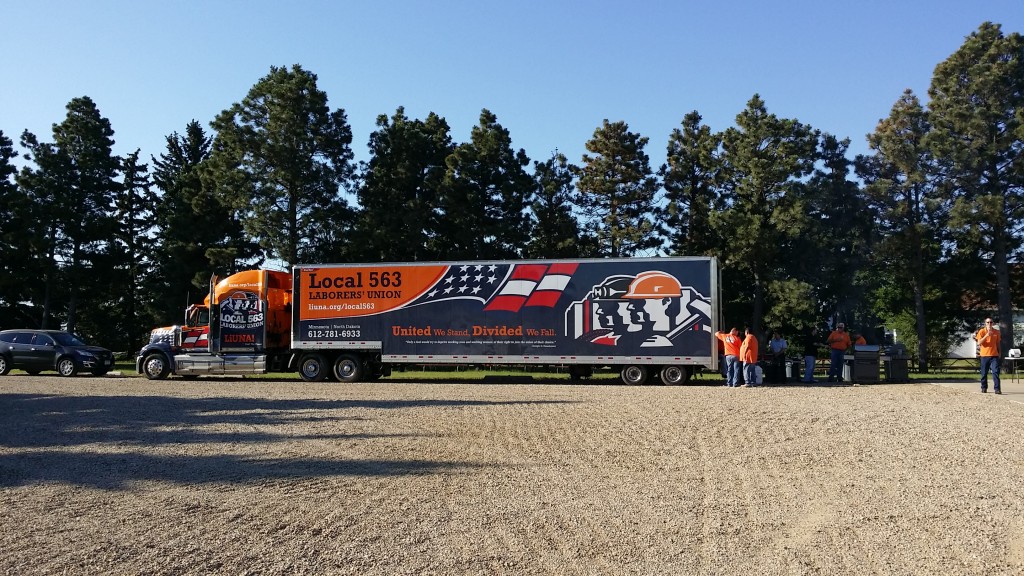
North Dakota’s Public Service Commission recently concluded its state wide listening session on the merits of the Dakota Access Pipeline, holding public hearings in Mandan, Killdeer, and Williston. Members of the MAIN Coalition as well as the general public were present at each of these hearings, providing statements in support of the project.
The Dakota Access project is projected to create 8,000 to 12,000 jobs along the route, is expected to generate over $50 million in tax revenues each of the states along its path, and is anticipated to be a $1 billion contribution in direct spending to the U.S. economy.
Our Coalition’s presence was noted by reporters at the meetings, especially in Williston, where Amy Dalrymple wrote:
The Midwest Alliance of Infrastructure Now, a coalition that includes labor unions, the Greater North Dakota Chamber and others, also voiced support for the pipeline.
The support of the labor members of our coalition was noted by an article in The Bismarck Tribune, which quoted of the Laborers District of North Dakota and Minnesota saying:
Our members are ready to work. We respect the process but we are excited to get our boots dirty and build this pipeline right.
Andy Peterson of the North Dakota Chamber of Commerce, representing the state’s business community, was present at multiple hearings, highlighting the benefits of the project to the state’s economy and national energy security. In a statement to the MAIN Coalition before the first PSC hearing, Peterson explained his support of the project by saying, “Pipelines like Dakota Access provide a safe, reliable, and efficient way to transport the crude oil that has fueled our state’s economic surge from the ground to American consumers, spurring billions in private investment and relieving pressure on rail and truck transport in the process.”
Several members of the public also spoke in support of the project, including landowners who described their positive interactions with land agents and the flexibility displayed by the company in modifying the route where possible.
The MAIN Coalition is confident that the Dakota Access project will be a benefit to the state of North Dakota and the Midwest, and is urging the PSC to review the project on its merits in a timely matter. We are confident that the project will help keep our economy growing and ensure long term growth and prosperity.
